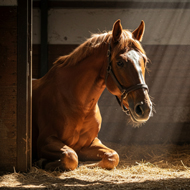New registration rules announced to protect poultry
During previous outbreaks, challenges arose when trying to communicate with smallholders and backyard keepers.
Every bird keeper in Great Britain will have to register their birds, regardless of flock size, under new rules announced by the UK government on Tuesday, 19 March.
The government hopes that the new measures will improve its ability to manage any future outbreaks of diseases such as avian influenza and Newcastle disease.
Until now, only keepers with 50 or more birds needed to register. By including all bird keepers in the register, there will be more information available for disease surveillance and identifying keepers in disease control zones.
Bird keepers will have until 1 September 2024 to register in Scotland, and until 1 October 2024 in England and Wales. They will also have to update their details annually. Registered keepers will receive updates about local avian disease outbreaks and biosecurity rules.
The changes have been taken forward from a recommendation in the 2018 Dame Glenys Stacey Review, which looked at farm regulation, as well as lessons learned during the recent outbreak of highly pathogenic avian influenza.
The rules apply to anyone keeping poultry and other captive birds, including chickens, turkeys, birds of prey, aviary birds, ducks, geese, pigeons, and emus. However, they do not apply to anyone keeping caged pet birds, such as parrots, budgerigars and canaries, inside their home.
Christine Middlemiss, UK chief veterinary officer, said: “These new rules will enable us to have a full picture of the number and location of birds kept across Great Britain, making it easier to track and manage the spread of avian disease.
“This information will be vital in helping to inform future risk assessments and maintain our commitment to continually building our extensive avian influenza research portfolio.”
Sheila Voas, Scotland’s chief veterinary officer, added: “We have faced challenges during previous outbreaks in clearly communicating the changes in both risk and mandatory biosecurity requirements to bird keepers, particularly smallholders and backyard keepers.
“This approach will enable us all to be better prepared and protected against a future pandemic.”
Image © Shutterstock



 Zoetis UK has called on horse owners to complete a short online survey about their horse's behaviours.
Zoetis UK has called on horse owners to complete a short online survey about their horse's behaviours.